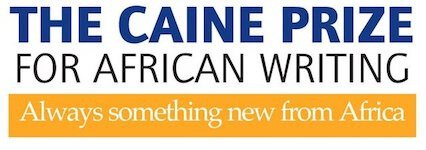2024 WRITERS’ WORKSHOP - SALIMA, MALAWI
Ten writers representing five African countries convened at Sigelege Hotel in Salima, Malawi for twelve days (16 June –29 June) for the eighteenth Caine Prize writers’ workshop. At the workshop the writers wrote, read and discussed work in progress. The workshop was facilitated by award-winning authors Femi Kayode (Nigeria) and Karen Jennings (South Africa), and was coordinated by Interim Director of the Prize, Vimbai Shire.
This year’s workshop participants comprised of previously Caine Prize shortlisted writers Joshua Chizoma (Nigeria, shortlisted in 2022), Ekemini Pius (Nigeria, shortlisted in 2023), Cherrie Kandie (Kenya, shortlisted in 2019) and Erica Sugo Anyadike (Tanzania shortlisted in 2020). They were joined by Morabo Morojele (Lesotho), Sibongile Fisher (South Africa), Yanjanani Banda (Malawi), Ndongolera Mwangupili (Malawi), Foster Benjamin (Malawi) and Beaulia Tambala (Malawi). All ten participants were Africans resident on the continent.
A typical day for the writers included writing in their rooms or elsewhere in the hotel grounds in the mornings, and in the afternoons, either more writing or a scheduled tutorial with tutors Karen and Femi. Writers were divided into two groups of five and each tutor became the primary mentor of one of the groups. Both tutors engaged with all the participants and stories in progress and fed back to each writer on their work. Tutors also discussed writers’ stories between themselves and led group sessions for the writers with tutors on topics including self-editing and pacing. Readings marked the close of each workshop day. The group gathered in one of the conference rooms to read and critique excerpts of their stories.
As part of the annual workshop for writers, we incorporate a Schools Programme which aims to get the writers out to local schools to talk about their craft and inspire a new generation of potential writers. As well as holding workshops at the school and a flash fiction competition which aims to reflect the type of work the writers themselves are undertaking, we also present the schools with books and writing materials.
Four local schools were visited during this workshop:
Msalura Community Day secondary School (CDSS)
Parachute CDSS
Salima Secondary School
MAFCO CDSS
We interacted with students as well as donated several boxes of books and teachers’ supplies. These were sourced from local bookshops in Lilongwe to ensure investment into the local economy. Muneno Bookshop and Baobab Books in Lilongwe, were very helpful in identifying the types of books and stories that would appeal to the schools and in line with the curriculum in Malawi. They were also very helpful with packing and transporting supplies to the schools. The libraries at the schools were delighted with the donations.
This year the Prize’s public event was hosted by The Story Club Arts Café in Area 47, Lilongwe. Hosted by two local radio presenters Eunice Maganga and Wanga Madalitso Fosiko, the evening saw a selection of Caine Prize workshop writers – Erica Sugo Anyadike, Ekemini Pius, Ndongolera Mwangupili and Yanjanani Banda participated in a panel discussion facilitated by Dr Wesley Macheso, Professor of Literature and Creative Writing at the University of Malawi. Writer and Story Club founder Shadreck Chikoti and Interim Director Vimbai Shire addressed the guests, who included local writers, poets and artists as well as staff from the British Council in Malawi. Food was served, music, drinks and conversations with attended guests flowed thereafter. The evening ended with a tour of the Story Club FM Radio studios. The event was a huge success and allowed participants to engage with local artists and literary organisations, promoting the spirit of storytelling and cultural exchange.
‘The Caine Prize workshop has left a big impact in Malawi. The four writers from Malawi who took part have all ... found the experience immensely transformative - quite beyond their wildest imagination. The [public] event held on 28 June left a buzz in the literary community that hasn't died down as we speak, two weeks after the event.’ Stanley Kenani
L-R: Caine Prize workshop participants Yanjanani Banda, Ekemini Pius, Ndongolera Mwangupili, Erica Sugo Anyadike and panel facilitator Dr Wesley Macheso.








